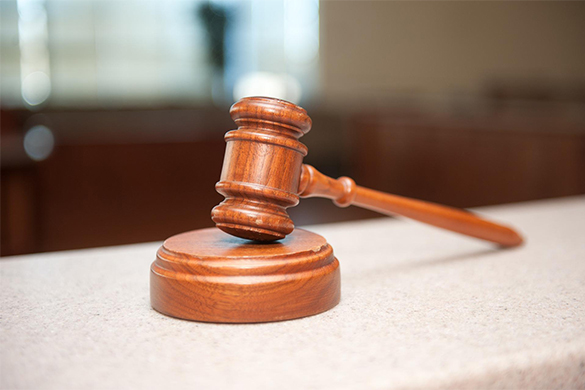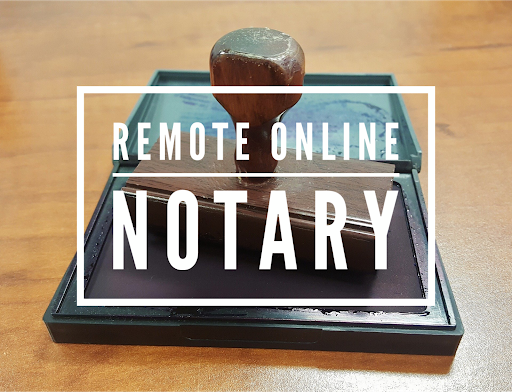Notary Service


Veteran Owned & Operated

Veteran Owned & Operated
Remote Online & Mobile Notary
What Is a Notary Public?
A Notary Public is an official of integrity appointed by state government —typically by the secretary of state — to serve the public as an impartial witness in performing a variety of official fraud-deterrent acts related to the signing of important documents. These official acts are called notarizations, or notarial acts. Notaries are publicly commissioned as “ministerial” officials, meaning that they are expected to follow written rules without the exercise of significant personal discretion, as would otherwise be the case with a “judicial” official.
What Does A Notary Do?
A Notary’s duty is to screen the signers of important documents for their true identity, their willingness to sign without duress or intimidation, and their awareness of the contents of the document or transaction. Some notarizations also require the Notary to put the signer under an oath, declaring under penalty of perjury that the information contained in a document is true and correct. Property deeds, wills and powers of attorney are examples of documents that commonly require a Notary.
Impartiality is the foundation of the Notary’s public trust. They are duty-bound not to act in situations where they have a personal interest. The public trusts that the Notary’s screening tasks have not been corrupted by self-interest. And impartiality dictates that a Notary never refuse to serve a person due to race, nationality, religion, politics, sexual orientation or status as a non-customer.
As official representatives of the state, Notaries Public certify the proper execution of many of the life-changing documents of private citizens — whether those diverse transactions convey real estate, grant powers of attorney, establish a prenuptial agreement, or perform the multitude of other activities that enable our civil society to function.
Why Are Notaries And Notarizations Necessary?
Through the process of notarization, Notaries deter fraud and establish that the signer knows what document they’re signing, and that they’re a willing participant in the transaction.
How it works?
1. Book or call for a Remote Online Notarization,
2. Upload your document(s) for review,
3. Ensure you have a computer, labtop, or webcam with a strong Internet connectivity,
4. Connect remotely with the Online Notary to notarize your document(s).
Book Notary Service
Book Remote Online Notary Service
The examples of documents that can be Notarized are:
- Transfer of property ownership
- Real Estate Documents
- Residential Loan documents
- Loan closings
- Title Escrow closings
- Deeds of Easement
- Quit Claim Deed
- Deeds Releases
- Grant Deeds
- Lien Releases
- Mortgage closings
- Real Estate
- Lease Agreements
- Vehicle Title Transfer
- Bill of Sale
- Proof of residence
- School district residency
- Declaration of guardianship
- Name Changes
- Travel consent
- Declaration of common law union
- Pre-Marital Agreements
- Dissolution of Marriage
- Durable Power of Attorney
- Bank Power of Attorney
- Certified Copy of Power of Attorney
- Medical treatment consent
- Advanced Medical Directives
- Medical records
- Wills
- Living Trust Documents
- Pension and Retirement documents
- Investment Documents
- Personal Statements
- DMV Traffic School Final Exam
- Certified Copy non-recordable documents
- Declaration of lost or stolen passport
- Business contracts
- Incorporation’s
- Business Partnerships
- Professional licensing
- Employment forms
- Business documents
- Financial documents
- Government Forms
- Promissory Notes
- Acknowledgements
- Jurats
- Affirmations
- Affidavits
- Oaths, Sworn in for Testimony
- Protesting a bill for non-payment
- Prison Inmate documents
- Documents for Apostilles
- Foreign Adoptions
- Adoption papers
Fill & Upload Your Order Form:
Frequently Asked Questions
What is a notary public?
Notaries are usually appointed by the Secretary of State.
The American Association of Notaries defines a notary public as an official witness to the free and willing signing of one or more documents by one or more people whose identity the notary has verified. In most cases, the document is signed in the notary’s presence; in some cases, it is signed first and then brought to the notary public by the signer, who will then acknowledge to the notary that he or she signed it.
What is a mobile notary?
A mobile notary is a notary that travels to your location – home, office, coffee shop, or other location.
What is a Notary Signing Agent?
A Notary Signing Agent or NSA is a Notary who has special training to handle document signings. Title companies and signing services to borrowers, oversee the signing and return the documents.
What ID do I need?
Acceptable forms of ID include but not limited to:
- State-issued driver’s license or ID card with picture and signature.
- Passport
- Military ID
- Green Card
In the case of a person who is 65 years of age or older and there is absolutely no other way to identify the document signer, they can be identified using an ID card issued by a governmental agency or a senior citizen center.
Is a photo ID required?
The law requires ID with a photo and signature of the document signer.
Can I use an expired photo ID?
A current ID is preferable, but in Florida, the statute doesn’t address expired IDs. The notary makes the determination of whether the signer’s ID is satisfactory or not.
What if I don't have ID?
Florida allows the following ways to identify a signer (from the Florida Revised Statutes):
(a) Is personally known to the notarial officer;
(b) Is identified upon the oath or affirmation of a credible witness who personally appears before the notarial officer;
(c) Is identified on the basis of an identifying document which contains a signature and a photograph;
(d) Is identified on the basis of a consular identification card;
(e) Is identified upon an oath or affirmation of a subscribing witness who is personally known to the notarial officer; or
(f) In the case of a person who is 65 years of age or older and cannot satisfy the requirements of paragraphs (a) to (e), inclusive, is identified upon the basis of an identification card issued by a governmental agency or a senior citizen center.
Can you provide the documents or forms I need?
No. In Florida notaries are not authorized to provide documents.
Can you help me fill out my documents?
No. I am not an attorney and cannot give advice or help with documents. Please contact an attorney if you have questions about your documents or need assistance completing them.
What do you charge?
My fees are set by the State of Florida. A travel fee may also be charged. For more information please call or text (561) 707-9967 , or email info@pbnotarypublic.com.
Do I need an appointment?
Appointments are preferred, but are not required except for after hours and on weekends. Please call or text (561) 707-9967 , email info@pbnotarypublic.com. or use the contact form to ask any questions.
Our Policies
- Verbal confirmation from customer is required to secure all appointments.
- Credit/Debt Card payments are required at least two hours before your scheduled appointment to secure the appointment.
- Cash payments are due at the time of your appointment before your document is notarized.
- Appointments canceled within thirty minutes of scheduled appointment slot will result in the loss of travel fees.( The amount billed for the notarizing of the document will be refunded to you)
Feel free to email us: info@pbnotarypublic.com
Or, Call Us: (561) 707-9967

![]()
![]()
![]()
![]()
![]()
